Menu
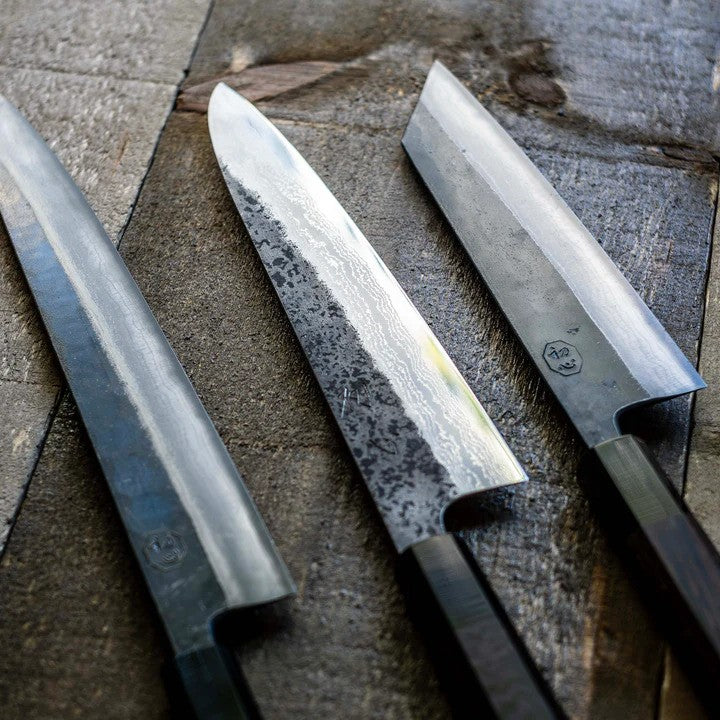
THE BLACKSMITH
HATSUKOKORO
- Choosing a selection results in a full page refresh.
















Usually ready in 1 hour
| Blade Length | 85 mm |
| Total Length | 215 mm |
| Steel | Aogami (Blue #2) Iron Clad |
| Handle | Wenge |
| Ferrule | Buffalo Horn |
| Rockwell | 61-63 |
| Height Spine to heel | 31 mm |
| Width at Spine | 2 mm |
| Weight | 62 grams |
| Bevel | Double (50/50) |
The Blacksmith
Hatsukokoro brings in masters of smithing, sharpening, and handle making to ensure quality, and a high attention to detail on their knives, so you know that you will be getting an amazing work knife. At the price these Kurouchi finish knives are a must have workhorse for any kit, the blue #2 steel will take an amazing edge, while being slightly more durable and rust resistant than a White steel (but we still wouldn’t push our luck). The dark octagonal wood handle looks great with the rustic style of the blade, making it as much a show piece as a work knife.
The Hatsukokoro kurouchi (kumokage) is one of our most popular lines in the shop! These guys come to us from Tosa city, Kochi Prefecture, Japan, and their namesake refers to the mysterious cloud shadows. At the price these Kurouchi finish knives are a must have workhorse for any kit, the blue #2 steel will take an amazing edge, while being slightly more durable and rust resistant than a White steel (but we still wouldn’t push our luck). The blacksmith (kurouchi) finish gives it a real rustic look, and the carbon core sharpens up quite easily, making it as much a show piece as a work knife, both aesthetically pleasing and practical!
The Knife
The petty is the Japanese equivalent of the western style paring knife. They're usually a little longer and I could never go back after using one. The idea is all the on board work is done wit your gyuto or chef knife and everything in hand is done wit the petty. Not limited to capping strawberries, peeling, turning, or coring veggies, and smaller butchery tasks like chicken, small fish, or deboning a pork shoulder.
Follow these care recommendations for your Japanese knives to protect the edge and keep them sharp as long as possible:
All products are shipped within 24 hours. We offer same day shipping for products ordered by 12pm. Please allow 4-7 business days for your shipment to arrive with standard shipping. Expedited shipping options are also available at checkout.
We offer free shipping on orders within Canada over $150 CAD and free shipping on orders to the US over $200 USD.
Curbside pick-up is available at both our Hamilton and Etobicoke locations.
To make sure our customers are always satisfied, we offer full refunds on products for 14 days after receiving them. See our full return policy for details.
More questions? Check out our shipping policy, our return policy, or reach out to us directly.
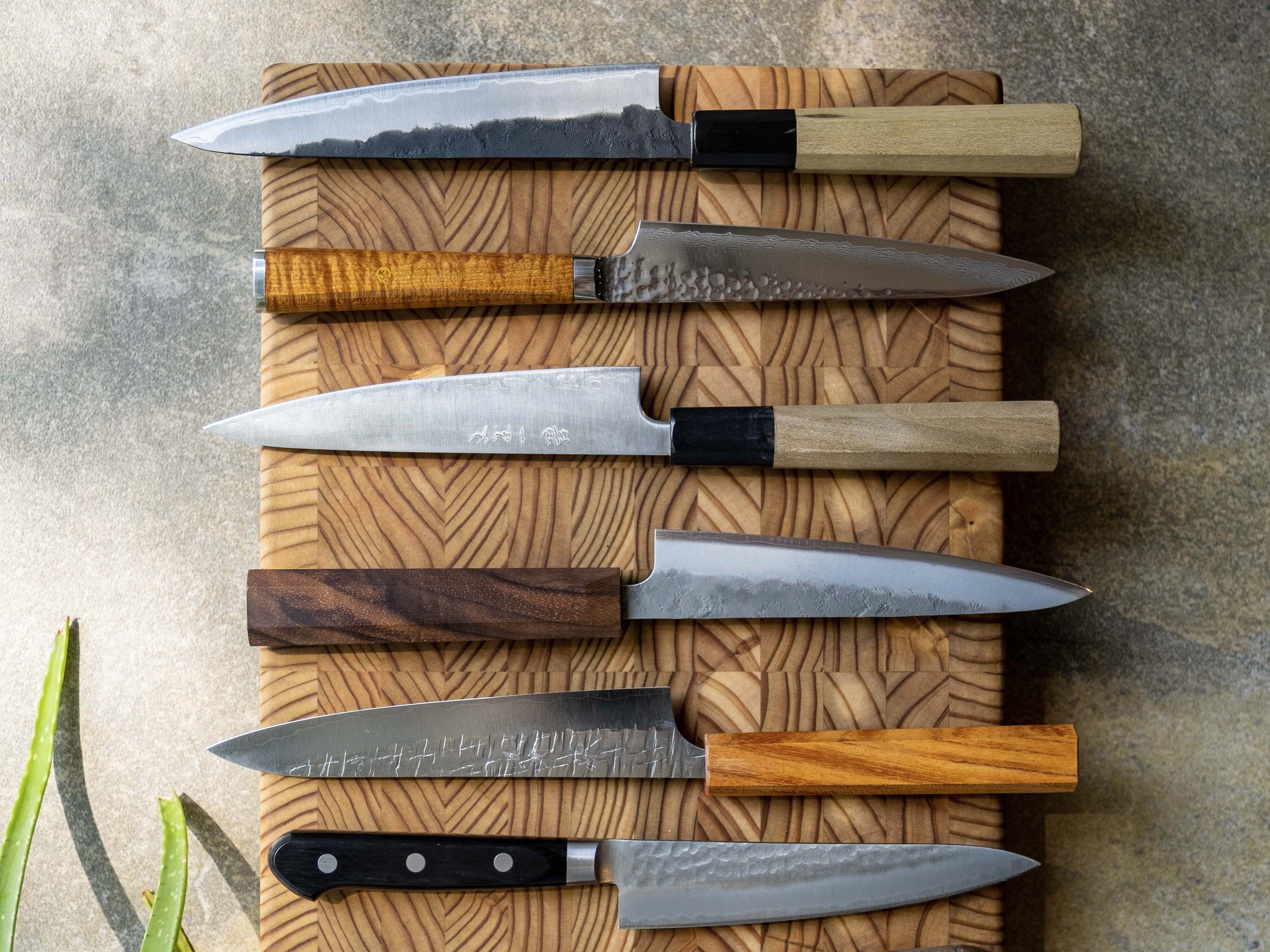
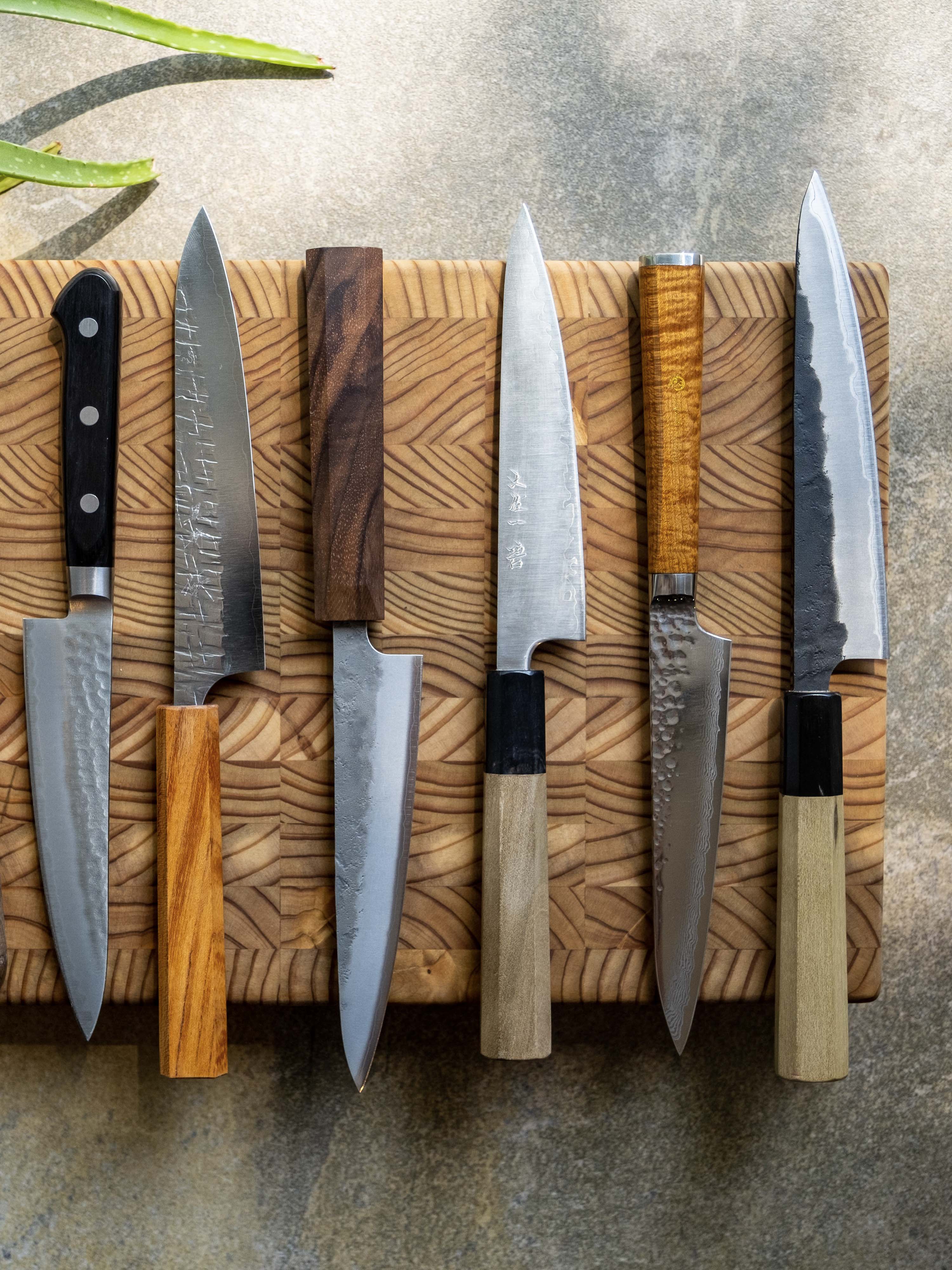
The petty knife is the Japanese equivalent of a utility knife. They typically range in size from 90 mm (3.5 inches) to 150 mm (6 inches) and have a slender, easy-to-control, short blade. They are a perfect accompaniment to a Gyuto, Santoku, or Bunka, as they facilitate smaller tasks. Shorter versions are great for in-hand use. Longer versions are great for fine chopping and managing small ingredients on a cutting board. They also handle butchery tasks with ease.
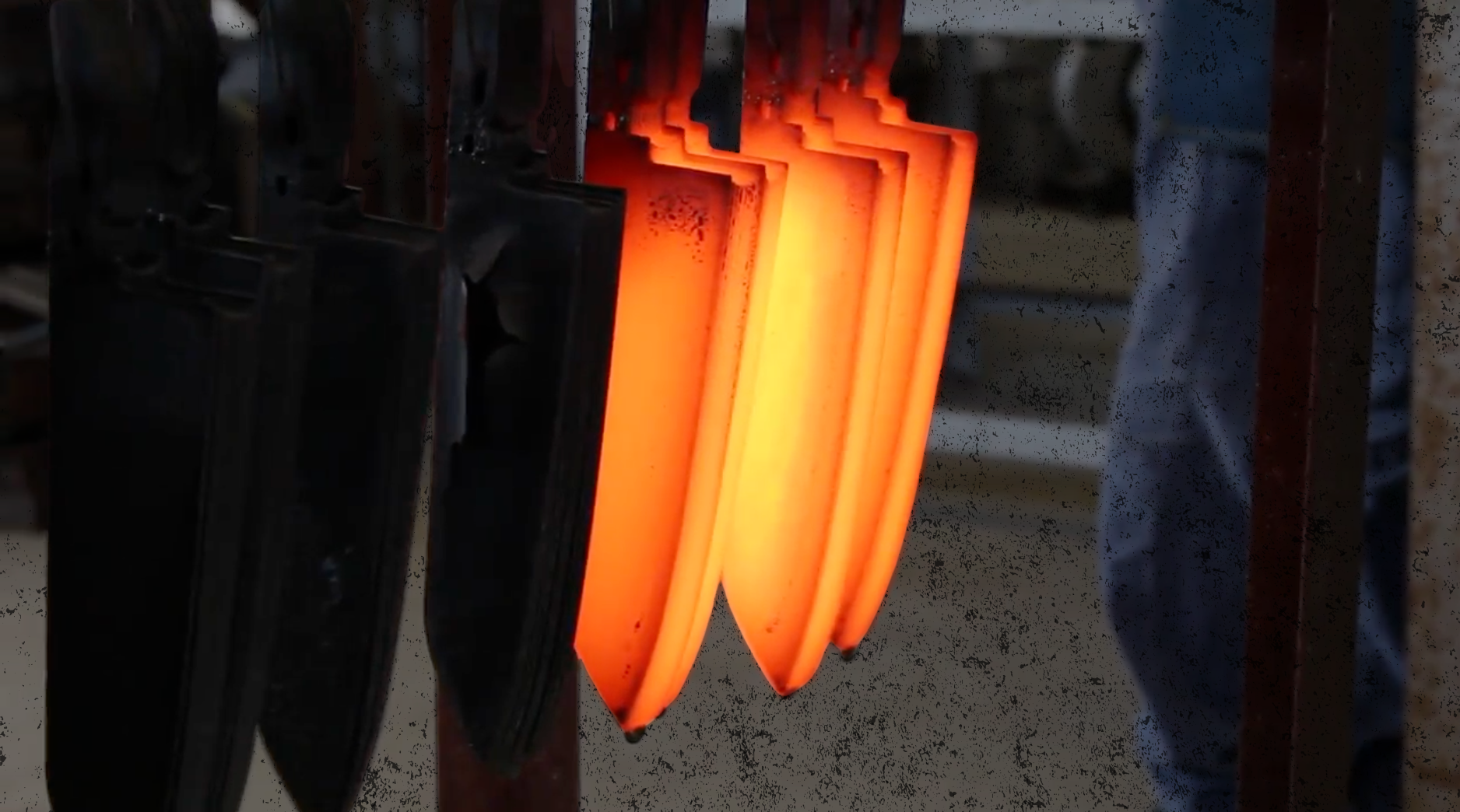
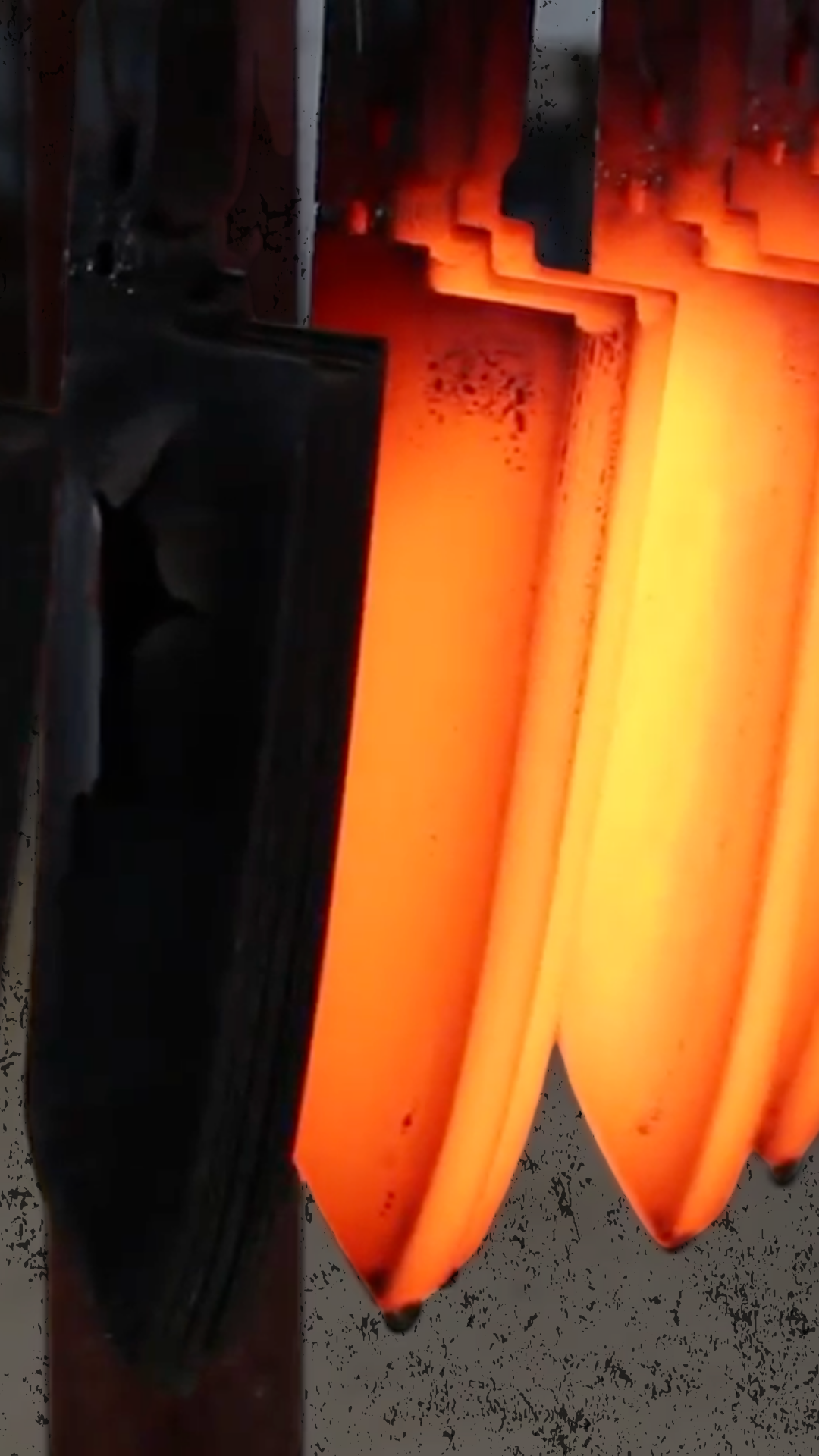
AKA Blue #2: This steel is highly regarded among blacksmiths and knife enthusiasts for its edge retention and ease of sharpening. It’s made by combining white steel with chromium and tungsten, which makes it slightly less susceptible to rust than white carbon steel and improves its edge retention. It’s great for those looking for good edge retention and easy sharpening.
Chemical Composition:
C 1.05-1.15% | Cr 0.2-0.5% | W 1.0-1.5%
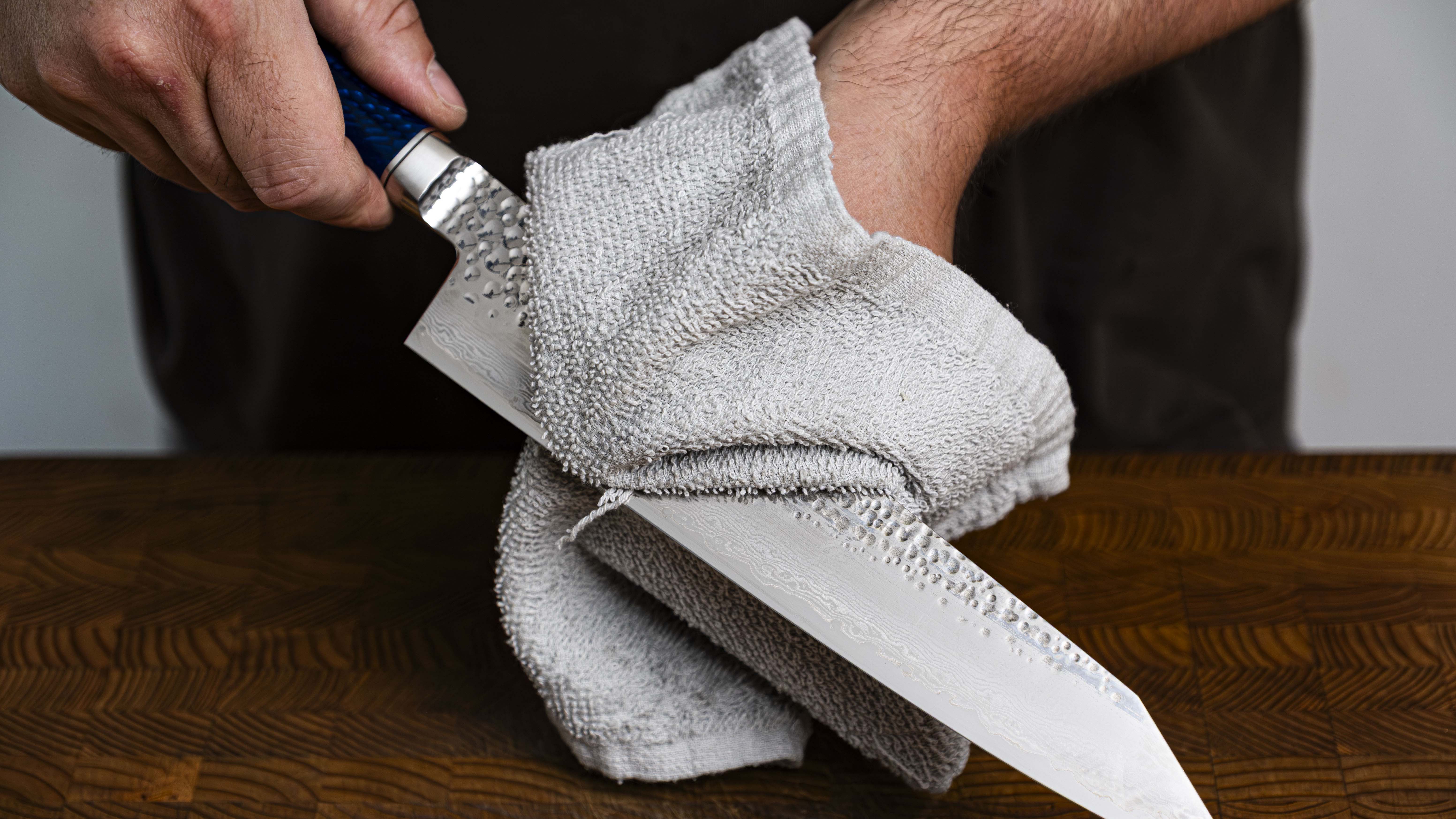
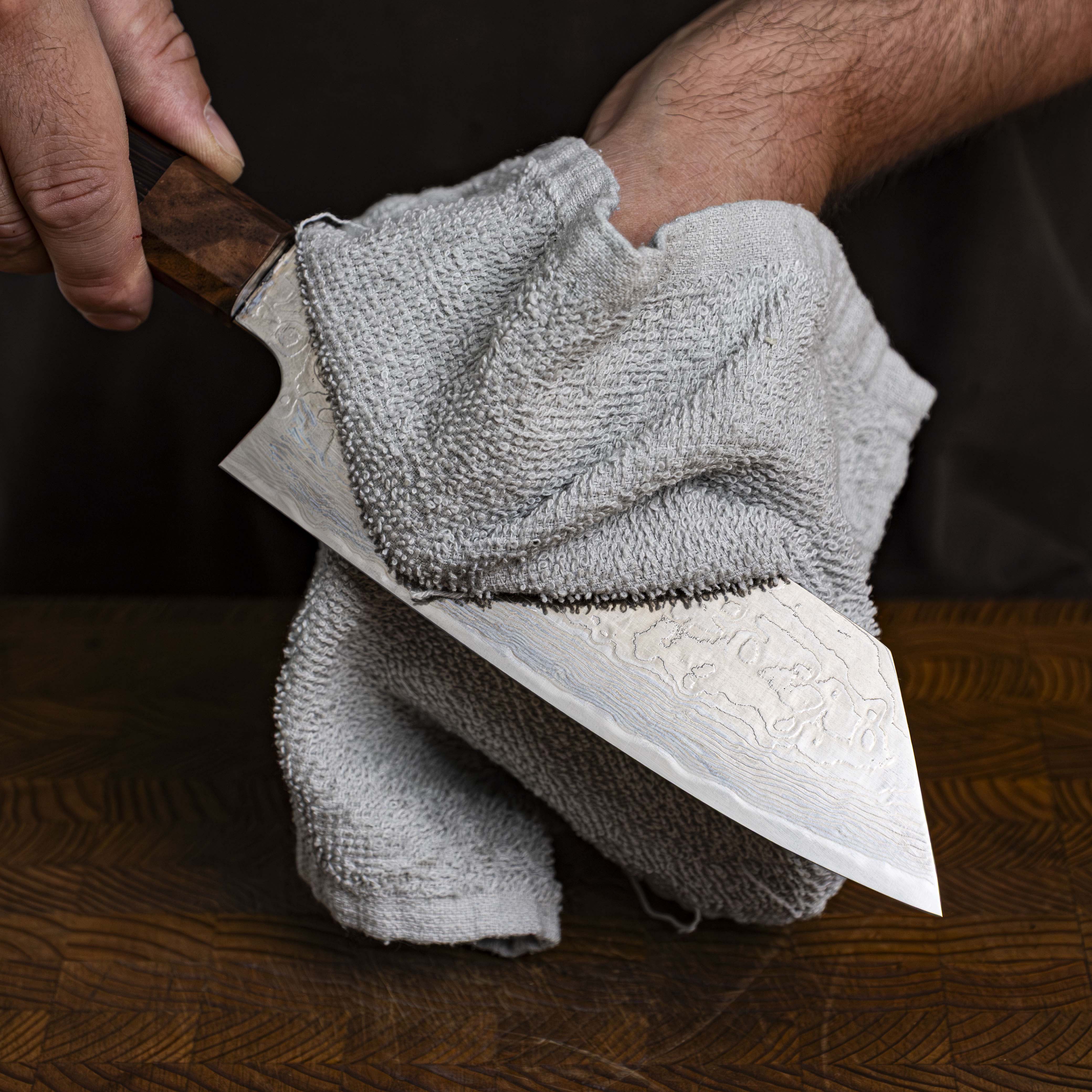
HIGH MAINTENANCE
Iron clad knives are composed of three layers of material: iron coating the outside with carbon steel inside. All layers are susceptible to rust and discolouration, so they must be kept dry and clean by wiping them down immediately after use. They will develop a patina (a darkening of the steel; blue, dark grey, and sometimes black colouration of the blade) no matter how well they are cared for. Iron clad knives are great for those who plan to thin and polish their blades, as iron is much easier to work with than stainless steel.

Hatsukokoro are masters of smithing, sharpening, and handle making. They ensure quality and a high attention to detail on their knives, so you know that you will be getting an amazing work knife. Based out of the industrial city of Amagasaki, Hyogo Prefecture, Japan, Hatsukokoro offers a wide breadth of handcrafted blades, sourcing from a variety of knife making regions across Japan. Their offerings are diverse in price point and profile, making them a great option for both industry professionals and home cooks.
